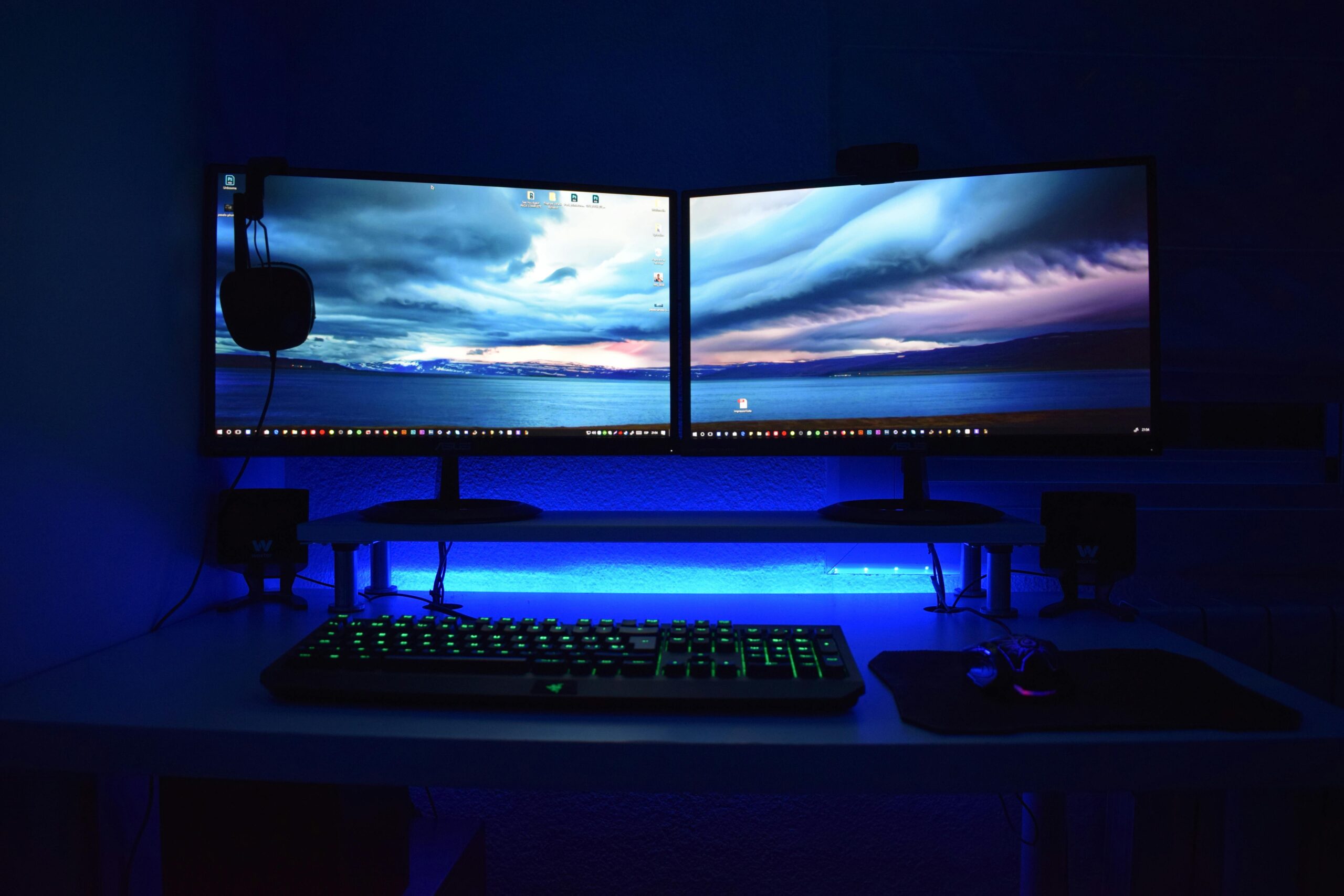How Long Can a Gaming PC Last? Tips to Extend Lifespan and Maximize Performance
When I first invested in my gaming PC, I couldn’t help but wonder how long it would truly last. With technology evolving so rapidly, it’s easy to feel like your setup might become outdated overnight. But the reality is, the lifespan of a gaming PC depends on several factors, from the hardware you choose to how well you maintain it.
A well-built gaming PC can last years, delivering smooth performance for both casual and hardcore gamers. However, it’s not just about longevity—it’s about staying relevant. As games become more demanding, keeping up with system requirements can be a challenge. So, how do you know when it’s time for an upgrade or if your current rig still has some life left in it? Let’s explore what impacts the lifespan of a gaming PC and how you can get the most out of your investment.
Factors That Affect A Gaming PC’s Lifespan
Numerous factors determine how long a gaming PC can maintain optimal performance. Understanding these elements helps maximize its usability.
Hardware Components
The type and quality of hardware determine how long a gaming PC stays relevant. High-end CPUs and GPUs, such as Intel’s Core i9 or NVIDIA’s RTX 4090, typically last longer for demanding games than budget-tier components. RAM capacity, storage type (SSD or HDD), and cooling systems also play a role in sustaining peak performance. Poor-quality or aging parts may lead to frequent failures.
Usage and Maintenance
Consistent usage under heavy workloads shortens a gaming PC’s lifespan. Running resource-intensive games at high settings for extended periods stresses hardware, especially the GPU and cooling system. Proper maintenance, including regular cleaning to prevent dust buildup and using reliable thermal pastes, significantly extends component durability. Software updates and avoiding malware also safeguard performance.
Technological Advancements
Rapid advancements in gaming technology and software affect compatibility. New game releases often push the limits of existing hardware, particularly for older PCs. For example, requirements for 4K or ray-tracing capabilities may outpace older GPUs. While hardware upgrades can address some gaps, staying ahead of these advancements is challenging without investing in modern components.

Average Lifespan Of A Gaming PC
The lifespan of a gaming PC largely depends on its components and how it’s maintained. High-quality builds can stay functional and relevant for several years, though performance may decline with advancing game requirements.
Budget vs High-End PCs
Budget PCs, which typically include mid-range or entry-level GPUs and CPUs, usually last around 3-5 years before struggling with newer games. These systems often face limitations due to lower clock speeds or less VRAM, making it harder to keep up with evolving technologies.
High-end PCs, built with premium components like flagship GPUs (e.g., NVIDIA’s RTX 4090) or CPUs with multiple cores and threads, can perform well for 6-8 years or more. They’re better equipped to handle future games at higher settings due to features like advanced ray tracing and higher refresh rate support.
Gaming Performance Over Time
Gaming performance tends to decrease as new games demand advanced processing power and graphical capabilities. For example, a GPU released in 2020 may flawlessly run games on ultra settings for the first 2-3 years before requiring medium or low settings after the 5-year mark.
Updating components, like upgrading to a new GPU or adding more RAM, can extend performance. However, compatibility issues with older motherboards or CPUs might arise, requiring more extensive upgrades.
Strategies To Extend A Gaming PC’s Lifespan
Extending a gaming PC’s lifespan involves proactive care and smart upgrades. By focusing on regular maintenance and replacing outdated parts, users can maintain optimal performance for years.
Regular Maintenance Tips
Keeping a gaming PC clean and functioning well prevents performance issues. Dust buildup can cause overheating, leading to hardware damage. I periodically clean the interior using compressed air, focusing on fans, vents, and heatsinks. Ensuring proper cable management improves airflow and reduces heat.
Monitoring temperatures helps identify overheating problems. Using software like HWMonitor or MSI Afterburner, I check CPU and GPU temperatures during heavy usage. Replacing faulty case fans or thermal paste ensures components stay cool.
Keeping software up to date minimizes security vulnerabilities and compatibility issues. I regularly update the operating system, drivers, and antivirus software. Running disk cleanups and reducing unnecessary startup programs boosts system efficiency.
Upgrading Components
Strategic upgrades improve a gaming PC’s longevity as newer games demand more power. Replacing the GPU every 4-6 years ensures the system meets modern graphics requirements. I select GPUs compatible with my PC’s motherboard and power supply.
Increasing RAM enhances multitasking and performance in newer games. Upgrading from 8GB to 16GB or more handles current gaming demands. Opting for higher-speed RAM further boosts performance when replacing existing memory modules.
Switching to an SSD provides faster boot times and file access compared to HDDs. I migrate frequently-used games and my operating system to the SSD while using HDDs for storage. Additionally, upgrading to a higher-wattage PSU supports new components reliably.

Signs It’s Time To Replace Your Gaming PC
Recognizing when it’s time to replace your gaming PC ensures you can continue enjoying smooth gameplay and new titles without constant frustrations. Below are key indicators that highlight the need for an upgrade.
Performance Issues
When a gaming PC struggles to maintain consistent frame rates or stutters frequently, it impacts the overall gaming experience. Frame drops, extended loading times, and overheating during gameplay signal that the hardware is no longer capable of meeting demands. After 4-6 years, components like GPUs, CPUs, and storage drives often begin to falter under the load of modern games, especially when set to higher resolutions or graphics settings. For example, running newer AAA titles at a desirable 60 fps becomes nearly impossible on outdated GPUs like the GTX 1060 or comparable models.
Compatibility Problems With New Games
Incompatibility with new games arises when hardware doesn’t meet the minimum system requirements, preventing them from launching or operating smoothly. As gaming engines and technologies advance, issues like black screens, extreme lag, or unsupported features may occur even on once-capable setups. For instance, certain DirectX 12 or ray tracing features may remain inaccessible on older hardware, such as pre-RTX series GPUs. If updates or patchwork solutions like driver upgrades stop resolving issues, replacing outdated components or the entire system may be necessary.
Conclusion
A gaming PC’s lifespan depends on thoughtful hardware choices, regular maintenance, and staying proactive with upgrades. While no setup can stay cutting-edge forever, smart care and strategic improvements can keep your system running smoothly for years. Paying attention to performance signs and knowing when to upgrade ensures you’ll get the most out of your investment. By balancing maintenance and upgrades, you can enjoy gaming without constantly worrying about falling behind.
Frequently Asked Questions
How long does a gaming PC typically last?
The lifespan of a gaming PC depends on its build quality and components. Budget gaming PCs generally last around 3-5 years before struggling with newer games, while high-end PCs with premium components can remain functional for 6-8 years or more with minimal upgrades.
What factors affect the lifespan of a gaming PC?
Key factors include the quality of components, maintenance, and usage. High-end parts like robust CPUs and GPUs last longer, while heavy workloads and poor upkeep can reduce longevity. Technological advancements also play a role, as older hardware may struggle to meet newer system requirements.
Can a gaming PC handle new games without upgrades?
Most gaming PCs can handle new games for 3-5 years. However, settings may need to be adjusted to maintain performance as newer games demand better graphics and processing power. Regular upgrades, such as updating the GPU, help keep your system relevant.
How can I extend the lifespan of my gaming PC?
You can extend your PC’s life with regular maintenance and strategic upgrades. Clean dust from the interior, monitor temperatures, update software, and replace parts like the GPU and RAM when needed. Switching to an SSD and ensuring sufficient PSU wattage also boosts longevity.
What are the signs I need to replace my gaming PC?
Signs include performance issues like stuttering, lower frame rates, and struggles handling modern games. Compatibility issues with new games, unresolved driver updates, or hardware that cannot meet system requirements are strong indicators to upgrade or replace.
How often should I upgrade my GPU?
It’s recommended to replace your GPU every 4-6 years to keep up with new game requirements. Upgrading sooner may be necessary if your GPU struggles to run modern games or maintain steady performance despite lowering settings.
Is upgrading components better than replacing the entire PC?
Upgrading components is often more cost-effective than replacing the entire system. Key upgrades, like a new GPU, additional RAM, or switching to an SSD, can significantly improve performance. However, if compatibility issues arise, replacing the system may be necessary.
Does regular maintenance impact gaming PC performance?
Yes, regular maintenance has a significant impact. Cleaning the interior to prevent dust buildup, monitoring temperatures to avoid overheating, and updating software can ensure stable performance and extend the lifespan of your gaming PC.
Can a budget gaming PC compete with high-end builds in longevity?
Budget PCs typically last 3-5 years and may struggle with demanding modern games sooner. Meanwhile, high-end builds equipped with premium components often last over 6-8 years, maintaining better performance across changing game requirements.
Should I invest in a higher wattage PSU when upgrading my PC?
Yes, a higher wattage PSU ensures your system can support new components, especially power-hungry GPUs. Investing in a reliable PSU prevents system instability and protects your components from potential power-related failures.
